- Group Term Insurance Eligibility
- Group Term Insurance Working
- Pros and Cons

I am a passionate content writer with over three years of experience in the insurance domain. An avid learner, I always tries stays ahead of the industry's trends, ensuring my writing remains fresh and includes the latest insurance shifts. Through my work, I strive to engage with targeted insurance readers.
Reviewed By:

Sharan Gurve has spent over 9 years in the insurance and finance industries to gather end-to-end knowledge in health and term insurance. His in-house skill development programs and interactive workshops have worked wonders in our B2C domain.
Updated on Jul 09, 2025 5 min read
Group Term Life Insurance
Group Term Life Insurance is a type of life insurance policy that provides coverage to a group of individuals, typically employees of a company. This coverage is usually offered as a benefit provided by the employer and is paid for by the employer or shared between the employer and the employees. Each individual in the group is typically covered for a specific amount, and in the event of the individual’s death, the designated beneficiary will receive a tax-free death benefit. Group term life insurance policies may also include additional features such as accidental death and dismemberment coverage.
Eligibility of Group Term Insurance
Group term insurance is a type of life insurance that is offered by an employer to its employees as a benefit. The eligibility criteria for group term insurance can vary depending on the specific policy and the term insurance company that is offering it. However, here are some common eligibility criteria that are typically followed:
- Employment
To be eligible for group term insurance, an individual must be a current employee of the company offering the policy. - Age
There is usually a minimum and maximum age limit for employees to be eligible for group term insurance. - Length of Service
Some companies require that an employee be with the company for a certain length of time before they are eligible for group term insurance coverage. - Job Classification
Certain job classifications may not be eligible for group term insurance coverage. - Health Status
Some group term insurance policies require that an employee meet certain health criteria in order to be eligible for coverage.
It’s important to note that the specific eligibility criteria for group term insurance can vary greatly depending on the company offering the policy and the terms of the policy itself. It’s best to check with your employer to determine the specific eligibility criteria for the group term insurance policy offered by your company.
List of Best Group term life insurance plans:
| S.no | Plan Name | Age limits | No. of people covered | Sum assured |
| 1 | India first group term life insurance plan | Min- 14 years Max- 85 years | Min. 50 | Rs. 5000 per member |
| 2 | Tata Aia Life Insurance Group term life | Min- 14 years Max- 84 years | Min 30 | Rs. 5000 per member |
| 3 | Bajaj Allianz Life Insurance Group insurance | Min- 14 years Max- 84 years | Min 50 | Rs. 1 crore to the whole group |
| 4 | Future general group term life insurance plan | Min- 18 years Max- 69 years | Min. 25 | Rs. 5000 per member |
| 5 | HDFC life group term life insurance plan | Min- 16 years Max- 79 years | Min 50 | Rs. 5000 per member |
It’s important to note that the specific eligibility criteria for group term insurance can vary greatly depending on the company offering the policy and the terms of the policy itself. It’s best to check with your employer to determine the specific eligibility criteria for the group term insurance policy offered by your company.
How does a Group Term Insurance Plan Work?
A group term insurance plan is a type of life insurance that is offered by an employer to its employees as a benefit. Here is how a group term insurance plan typically works:
- Enrollment
Employees are given the opportunity to enroll in the group term insurance plan offered by their employer. They can choose to enroll in the plan or decline the coverage. - Coverage Amount
The coverage amount offered under a group term insurance plan is typically a multiple of an employee’s salary, such as one or two times their annual salary. - Premiums
The premium for a group term insurance plan is typically paid by the employer, although some plans may require employees to pay a portion of the premium. - Beneficiary Designation
Employees can typically designate a beneficiary to receive the death benefit in the event of their death while covered under the group term insurance plan. - Death Benefit
In the event of the death of an insured employee, the death benefit is paid to the designated beneficiary. The death benefit is typically a tax-free payment and can be used to cover expenses such as funeral costs, outstanding debts, or to provide income for the beneficiary. - Duration of Coverage
Group term insurance coverage typically lasts as long as an employee remains employed with the company. If an employee leaves the company, their coverage typically ends.
Group Term Life Insurance Benefits
Group term life insurance is a type of life insurance that is offered by an employer to its employees as a benefit. Both employer and employees benefit from opting for group term insurance. Here are some of the advantages of offering group term life insurance to employers and employees:
To Employers
- Attraction and Retention
Offering group term life insurance as a benefit can help attract and retain employees. - Cost-Effective
Because the cost of insurance is shared among a large number of employees, group term life insurance is usually less expensive than individual life insurance policies. - Increased Productivity
Providing group term life insurance as a benefit can help employees feel more secure and less stressed, which can lead to increased productivity in the workplace. - Tax Benefits
Employers may be able to receive tax benefits for offering group term life insurance as a benefit to their employees. In some cases, the premiums paid for group term life insurance can be tax-deductible for the employer. - Positive Image
Offering group term life insurance as a benefit can help improve the image of the employer, as it demonstrates that the company cares about the well-being and financial security of its employees.
To Employees
- Accessibility
Group term life insurance is typically more accessible than individual life insurance policies, as employees can enroll in the plan through their employer without having to go through the process of shopping for and purchasing an individual policy. - Cost-Effective
Group term life insurance is typically more cost-effective than individual life insurance policies, as the cost of insurance is spread across a large group of employees. This can result in lower insurance premiums for the employees. - Coverage Without a Medical Exam
Some group term life insurance plans may offer guaranteed issues, meaning that employees can enroll in the plan without having to undergo a medical exam or answer health questions. - Peace of Mind
Group term life insurance provides employees with peace of mind knowing that their loved ones will be financially protected in the event of their death. - Designating a Beneficiary
Under most circumstances, employees may name a person as the beneficiary who will get the death benefit if they pass away while still protected by the group term life insurance plan. - Portability
Some group term life insurance plans may offer employees the option to convert their coverage to an individual policy when they leave their employer. This can be a valuable feature for employees who wish to continue their life insurance coverage.
Disadvantages of Group Term Life Insurance
While group term life insurance provides several benefits for both employers and employees, there are also some disadvantages to consider. Some of the disadvantages of group term life insurance include:
- Reduced Coverage as You Age
The death benefit for group term life insurance is typically based on a multiple of an employee’s salary. As an employee ages, their salary may increase, but the death benefit may remain the same. This can result in a reduced level of coverage as an employee ages. - Limited Coverage
The death benefit for group term life insurance is typically limited, and may not be enough to meet the financial needs of an employee’s loved ones in the event of their death. - Limited Duration
Group term life insurance is typically offered for a limited duration, such as one year. Employees may need to re-enroll in the plan each year, and the premium may increase over time. - No Cash Value
Group term life insurance typically does not have a cash value component, which means that there is no money available to the employee if they leave their job or if they stop paying the premiums. - Termination Upon Leaving Employer
Group term life insurance is typically tied to employment, and the coverage may terminate when an employee leaves their job. - Lack of Customization
Group term life insurance is typically offered as a one-size-fits-all plan, with limited options for customization. This can be limiting for employees who have specific coverage needs or who want to tailor their coverage to their individual circumstances.
Wrapping it up
Group term insurance is a type of life insurance that is offered as a benefit to employees by an employer. The cost of the insurance is typically shared by the employer and the employees, and the coverage is based on a multiple of the employee’s salary. Group term life insurance policy covers the employees and offers them peace of mind as they know that their loved ones will be financially protected in the event of their death. However, there are also some disadvantages to consider, including reduced coverage as an employee ages, limited coverage, and termination upon leaving the employer. It’s important for employees to carefully review the terms and conditions of the group term life insurance plan offered by their employer, and to consider their individual coverage needs and financial circumstances before enrolling.
Life Insurance Companies
Share your Valuable Feedback
4.6
Rated by 863 customers
Was the Information Helpful?
Select Your Rating
We would like to hear from you
Let us know about your experience or any feedback that might help us serve you better in future.


Written By: Varun Saxena
I am a passionate content writer with over three years of experience in the insurance domain. An avid learner, I always tries stays ahead of the industry's trends, ensuring my writing remains fresh and includes the latest insurance shifts. Through my work, I strive to engage with targeted insurance readers.




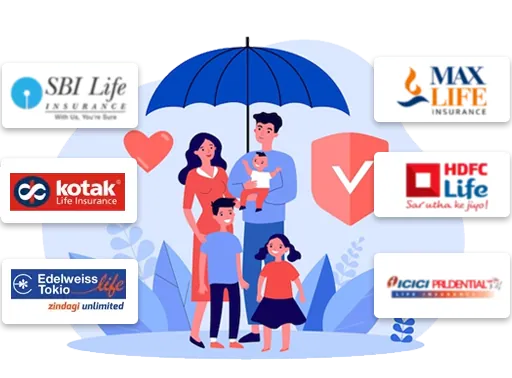
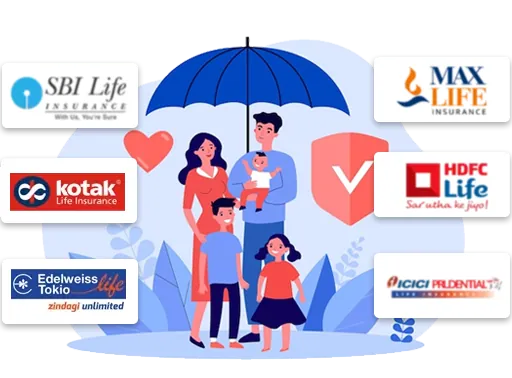
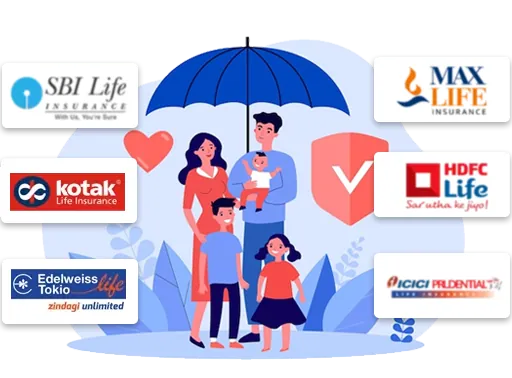



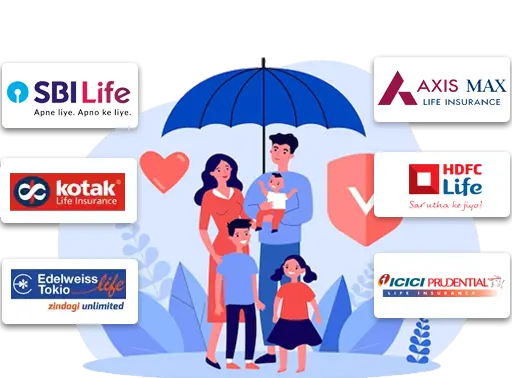
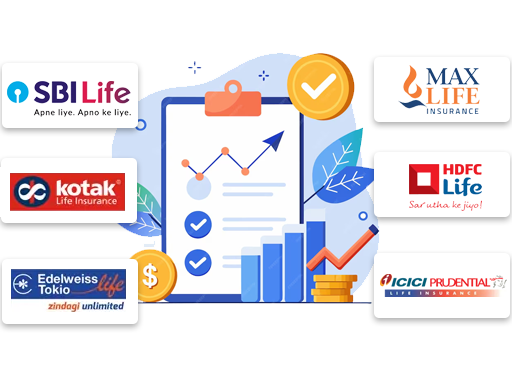

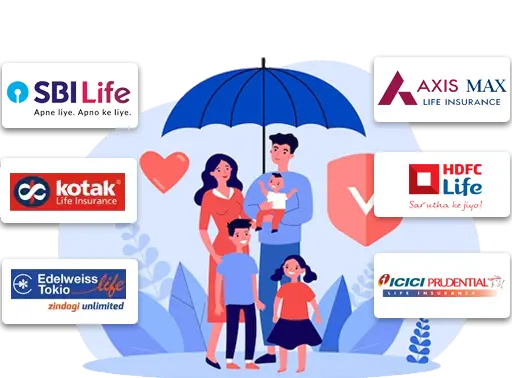







Do you have any thoughts you’d like to share?